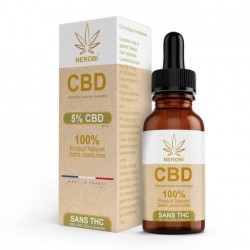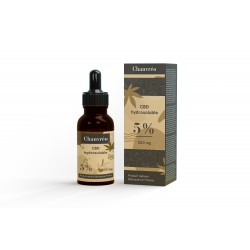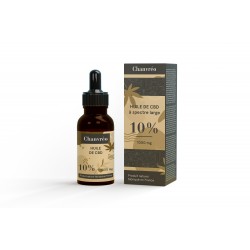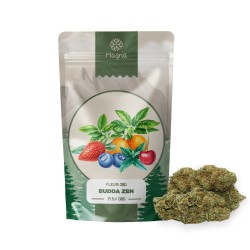-
- CBD for Pets
- Why take CBD to sleep better ?
- Which CBD for stress and anxiety ?
- Buy CBD for high and low blood pressure
- Buy CBD for pain relief
- Buy CBD for your addictions
- Buy CBD for the skin
- Buy CBD beauty products
- Buy CBD Wellness
- Buy CBD for focus and motivation
Product successfully added to your shopping cartQuantityTotalThere are 0 items in your cart. There is 1 item in your cart.Total productsTotal shipping To be determinedTotalContinue shopping Proceed to checkoutMy account-30% Off In Your Shopping Cart And 24H Delivery
We currently have 4 products of Buy CBD for your addictions in stockBuy CBD for your addictions
Cannabis is among the most widely used illicit drugs. Addiction to this substance is described as problematic. The hemp plant is composed of many molecules including CBD, terpenes, flavonoids or even THC. The latter is the one with addictive potential. To palliate your addictions, the consumption of CBD can be the right solution.
How CBD can work against addiction
CBD or cannabidiol is one of the most important substances in cannabis. Known for its therapeutic properties and anti-inflammatory action, it can be consumed legally. Unlike THC, this molecule has no effect on dopamine levels. According to the WHO report, it does not present a health hazard. Moreover, CBD does not cause any risk. It may prove useful in the treatment of addictive behaviors.
CBD is not psychoactive
Tetrahydrocannabidiol or THC is known for its euphoric effect. Acting on the activity of the nervous system and brain, it affects the mental state. On the other hand, CBD limits the risks of bad trip. The latter translates into anxiety and stress. Although it also has a sedative effect, cannabidiol oil can calm the nervous system and the brain. It does not transform your state of consciousness. This molecule does not produce euphoric intoxication.
On the other hand, THC tends to play on the reward system. This makes some people addicted. However, CBD can be consumed every day and on the long term, without falling into addiction. Therefore, it seems that the non-toxicity of this product has a positive impact on addiction.
CBD helps fight addiction
Cannadibiol is likely to promote well-being and relaxation. It has other interesting actions against the problem of addiction. A study conducted by specialists was able to prove its impact on the consumption of addictive substances such as alcohol and nicotine. The latter is present in tobacco. CBD-based products such as CBD oil can be a valuable aid in overcoming addiction to tobacco and other opiates. Helping to overcome the strong urge to relapse, cannabidiol does not induce annoying side effects. Its calming and antiemetic properties help manage discomfort and nausea due to smoking cessation.
Reduce your THC intake with CBD consumption
Being devastating, the psychotropic effect of THC are likely to cause paranoia, anxiety attacks or even anxiety. Thanks to its sedative action, CBD could mitigate these. It calms your brain. In addition, it would improve the capabilities of your blood vessels. This minimizes the risk of palpitation or heart acceleration. Cannabidiol is one of the natural alternatives to traditional antipsychotics. In order to gently reduce cannabis addiction, the consumer can combine a high CBD content with a small percentage of THC. This method is recommended for people who want to optimize the relaxing and therapeutic benefits of this substance.
Cannabidiol helps fight alcohol addiction
CBD could also help you get rid of dependency and addictions to alcohol, nicotine and tobacco. One study showed that cannabidiol would be a natural solution to reduce alcohol overconsumption. This product can prevent relapses and avoid the risks associated with aggravated addiction. It is therefore possible to prescribe it to a person wishing to stop drinking. Gradually decreasing the harmful effects of alcohol on the body, CBD oil or other CBD-based products help you succeed in your alcohol withdrawal.
.
Can CBD be addictive?
Neurotransmitters flood the brain when exposed to addictive substances like nicotine, tobacco, alcohol, cannabis, etc. These pleasure triggers are one of the sources of addiction. Even though cannabidiol can improve your daily well-being, it does not make consumers addicted. Some studies prove that CBD could limit withdrawal symptoms and cravings like:
- hallucinations.
- vomiting.
- hyperthermia. ,nausea , Tremors , etc.
With this product, the risk of addiction is zero. In addition, its consumption has no adverse effects on your health. However, you have to be careful with overdosing. Taken in large quantities, CBD is believed to be less beneficial to your health. To treat addictions with a cannabidiol, it is important to choose reliable products. The level of THC in oil, capsules, nicotine-free e-liquid, etc. should not exceed 0.3%. Beyond this threshold, the risk of addiction becomes possible.
Difference between cannabis addiction and CBD addiction
It is important to differentiate the potential properties and effects of cannabinoid with those of cannabis. One study indicates that addiction to the latter corresponds to addiction to tetrahydrocannabidiol. Appreciated for the sensation it provides, THC can stimulate the production of dopamine. The user can thus feel an immediate pleasure. Nevertheless, this form of intoxication can create a short or long term high. Over time, a feeling of dependence is triggered. If left unchecked, THC administration can quickly lead to addiction or other negative effects.
CBD products such as oil, flowers, etc., on the other hand, do not act on the brain the consciousness of consumers. Considered a non-addictive substance, cannabidiol is currently used in the treatment of symptoms related to withdrawal during the withdrawal period. Addiction to CBD could allow you to take advantage of many of its virtues. On the contrary, cannabis addiction is detrimental to mental and physical health.
In conclusion, cannabidiol is among the natural solutions to get out of an addiction to tobacco, nicotine, etc. According to a study, it can be effective in facilitating withdrawal and treating addictive behaviors. In order to benefit from the desired result, it is important to choose the right products. Choose those with low THC content. Finally, make sure to follow the dosage recommended by specialists.
Discretion & SpeedLoyalty RewardResponsive Customer ServicePREMIUM QUALITYNewsletterClick here to subscribe to our newsletter!
NewsletterThe best offers, good advice?
Sign up now!100% secure payment© 2026 - Magna CBD
Footer Block




